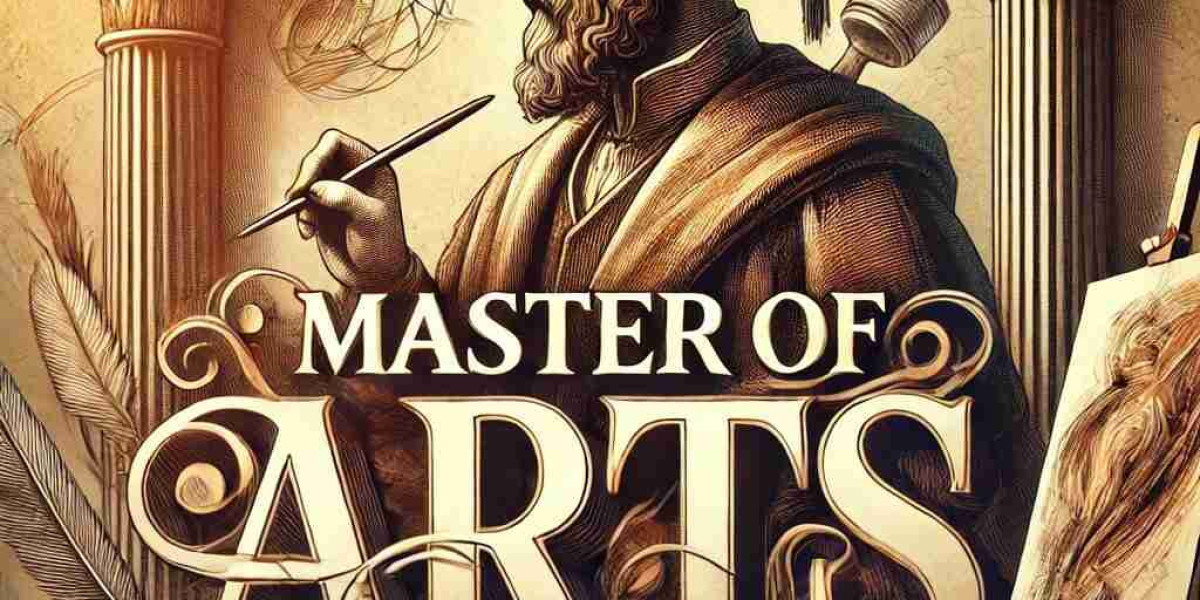The Master of Arts (MA) is more than just a degree. It’s a gateway to advanced knowledge, critical thinking, and specialized skills. For many, pursuing an MA marks a turning point in their academic or professional journey. But what exactly does it entail, and why is it so significant? Let’s explore the essence of this highly regarded qualification.
What is an MA?
At its core, the MA full form stands for Master of Arts. It’s a postgraduate degree, often pursued after completing a bachelor’s program. Unlike degrees with a heavy focus on technical or scientific subjects, an MA revolves around the humanities, social sciences, and sometimes the fine arts. Think literature, history, philosophy, or sociology.
Imagine someone passionate about dissecting Shakespeare’s plays or analyzing political systems. An MA provides the perfect platform to dive deeper into these areas. It’s about honing expertise and sharpening intellectual tools.
The Significance of an MA
Why pursue an MA? The reasons are plenty.
First, it offers specialization. A bachelor's degree might introduce you to a field, but an MA allows you to zoom in. For instance, a BA graduate in Political Science might pursue an MA focusing on International Relations.
Second, it boosts career prospects. Many jobs today demand advanced qualifications. Holding an MA can give candidates an edge, showing employers they’re committed to mastering their craft.
And let’s not forget personal growth. An MA challenges your thought processes. It forces you to question, analyze, and create. In a world that often values quick answers, an MA teaches patience and depth.
The Diverse Fields Within an MA
The Master of Arts isn’t a one-size-fits-all degree. It encompasses a wide range of subjects.
- Humanities: Literature, linguistics, history, and philosophy. Here, you’re delving into the human experience—understanding culture, language, and thought.
- Social Sciences: Psychology, sociology, economics, and political science. These areas let you study society and human behavior in depth.
- Fine Arts: Subjects like music, theatre, and visual arts fall under this umbrella, where creativity meets academia.
Each of these fields offers unique perspectives and opportunities. For instance, studying psychology at the MA level could lead to roles in counseling or organizational behavior. Similarly, an MA in literature could pave the way for a career in academia, publishing, or creative writing.
The Journey of an MA Student
Picture this: You’re in a seminar room, surrounded by a handful of peers and an expert professor. The discussion? Heated and stimulating. You’re analyzing a 19th-century text or debating the ethics of modern political systems. That’s the MA experience.
The coursework is rigorous. Students tackle essays, projects, and sometimes a thesis. The goal isn’t just to absorb information but to produce knowledge. You’re expected to contribute original ideas.
And the good news? The skills you develop aren’t confined to academia. Critical thinking, advanced communication, and research are assets in any profession.
Real-World Applications
Here’s the thing: An MA isn’t just for academics. Its reach extends far beyond lecture halls.
Take journalism, for example. An MA in Media Studies or Communication equips aspiring journalists with analytical tools to navigate the ever-evolving media landscape.
Or consider someone in the corporate world. An MA in Organizational Psychology can make them indispensable in managing teams or shaping company culture.
Even creative fields benefit. Writers with an MA in Literature or Creative Writing often produce richer, more nuanced works.
In essence, the Master of Arts bridges theory and practice. It combines intellectual exploration with tangible career benefits.
The Global Appeal of an MA
The MA full form might remain consistent worldwide, but its applications vary across countries.
In Europe, for instance, an MA is often linked to research, preparing students for a Ph.D. or advanced academic roles. In the U.S., it might be more professionally oriented, focusing on skills for specific industries.
Yet, no matter the location, one thing remains clear: an MA is a symbol of advanced learning and dedication.
Is an MA Right for You?
Not everyone needs to pursue a Master of Arts. But for those with a passion for their field, it can be life-changing.
Ask yourself: Do you want to specialize? Are you looking to advance your career? Do you enjoy deep, intellectual discussions? If the answer is yes, an MA might just be your calling.
However, it’s essential to choose wisely. Look for programs that align with your interests and career goals. Research the faculty, curriculum, and potential outcomes. Remember, this is an investment in your future.
Challenges and Rewards
Let’s be honest. Pursuing an MA isn’t a walk in the park. The coursework is demanding. Deadlines can be tight. And balancing studies with personal commitments? Tricky.
But the rewards? Immense. Graduates often describe the experience as transformative. They leave not just with a degree but with a renewed sense of purpose and direction.
Final Thoughts
The Master of Arts is more than a title. It’s a testament to one’s dedication, intellect, and curiosity. Whether you’re exploring ancient texts, dissecting social systems, or creating art, an MA allows you to make meaningful contributions to your field.
So, if you’re considering this path, take the plunge. It’s a journey worth embarking on.
FAQs
1. What does the MA full form stand for?
The MA full form is Master of Arts, a postgraduate degree focusing on the humanities, social sciences, or fine arts.
2. How does an MA differ from an MSc?
An MA emphasizes theoretical and analytical approaches in subjects like literature or sociology, while an MSc is more technical, covering fields like science or engineering.
3. Can I pursue an MA after any bachelor’s degree?
Yes, though some MA programs require a relevant background. For example, an MA in English Literature often prefers candidates with a bachelor’s in a related field.
4. Is an MA useful for careers outside academia?
Absolutely. The critical thinking, communication, and research skills gained during an MA are valuable in industries like media, business, and public policy.
5. What is the duration of an MA program?
Typically, an MA takes 1-2 years to complete, depending on the country and program structure.



